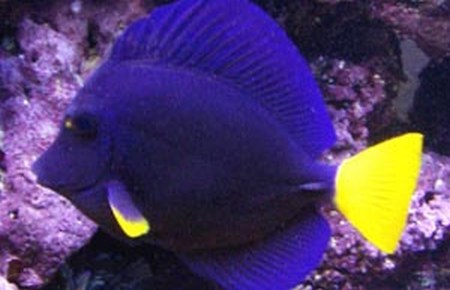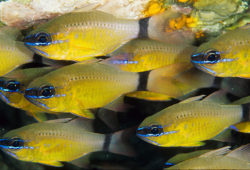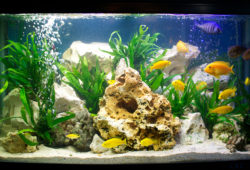Purple Tang
The Latin name of Purple tang is Zebrasoma xanthurus. They are also known as Red Sea Purple Tang, Yellowtail Tang.

Contents
Characteristic features
The Purple tang is a beautiful Red Sea Fish in purple color with a yellow tail. The fish is usually very hardy by nature and belongs to a family of aggressive members of the species. It can even
Hunt for a fish with similar behavior and shape. However, it can cope up very well with the community in the tank. Try to arrange a swimming room and a suitable hiding place for this fish. Large purple tangs are rare but small and medium sized ones are quiet common.
The size of the purple tangs vary greatly
- The small Purple tangs 1”- 2” or the size may vary.
- The medium Purple tangs 2″-3″ or the size may vary.
- The large Purple tangs 3″-4″ or the size may vary.
- The X-Large Purple tangs 4″-5″ or the size may vary.
The minimum aquarium size to keep a Purple tang fish would be at least 20.
Food
The Purple tang is an herbivore. Feed your Purple tang with varied diets. The variety of diet of your Purple tang includes,
- dried algae sheets and
- frozen and flake foods
A Purple tang is compatible with a reef tank. Usually it eats some algae. Some related Purple tang includes
- Gem Tang
- Sailfin Tang
- Scopas Tang
- Yellow Tang and
- More Tangs
Availability
The Red Sea fish is always a rare species. They are very unpredictable. So, Purple tangs are in high demand and sold away faster.
The price of the Purple Tang mainly depends on size
A small Purple tang fish would cost you around $129.
A medium Purple tang fish would cost you around $139.
A large Purple tang fish would cost you around $149.00.
An X-Large Purple tang fish would cost you around $175.00.
Perhaps, The Purple Tang is the most wanted Tang in the aquarium industry. So if you already have a rare collection of a Purple Tang in your aquarium, feel great and take proper care of your fish.



